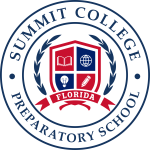Best Practices in Gifted Education: A Holistic Approach
Personalization. Depth. Global Perspective.
Understanding the Complexity of Giftedness
To meet the unique needs of gifted students, educational institutions must adopt best practices in gifted education. These practices must address academic, emotional, and social development. Schools must understand that giftedness is a multi-dimensional trait that requires structured support across all aspects of the student's experience.
Personalized Learning
Personalized learning remains a cornerstone of gifted education. Gifted students require individualized learning plans that respond to their cognitive needs, learning styles, and emotional development. These plans should reflect each student’s strengths, passions, and pace, creating flexibility in the way content is delivered and how outcomes are assessed.
Appropriate academic acceleration must be part of the model, allowing students to move ahead through grade skipping, access to advanced coursework, or independent study in high-interest areas. Such approaches ensure that learners remain intellectually stimulated and do not become disengaged by a generalized or repetitive curriculum.
Differentiated Instruction in Practice
Effective gifted education requires teachers to implement differentiated instruction strategies within mainstream classrooms. This involves tailoring assignments and instructional strategies to meet elevated learning needs. Tiered assignments, independent projects, and open-ended problem-solving opportunities allow for deeper exploration and personal challenge.
Flexible grouping models that allow gifted students to collaborate with intellectual peers enable dynamic and productive academic interactions. These groupings support critical thinking, creativity, and advanced reasoning through collaborative and inquiry-driven learning experiences.
Enrichment and Depth Beyond the Curriculum
Gifted learners benefit significantly from enrichment opportunities that extend beyond core curriculum frameworks. These programs enable deep academic exploration and engagement with authentic problems and concepts. High impact enrichment opportunities include project based learning, mentorship engagement, and interdisciplinary research.
Project based learning offers gifted students real-world engagement through investigations and problem-solving within areas of passion and relevance. Mentorship programs place students in direct contact with subject matter experts, enhancing depth of understanding and opening professional pathways. Interdisciplinary approaches encourage learners to integrate knowledge across fields and apply it creatively and critically in multifaceted contexts.
Social-Emotional Foundations of Gifted Education
Social emotional development is an essential and often overlooked component in the education of gifted students. These learners frequently experience heightened emotional intensity, social isolation, and anxiety. Without adequate support, these emotional dynamics may hinder their academic and personal development.
Social emotional learning must be fully integrated into curriculum and school culture. Instruction should explicitly address emotional regulation, resilience, stress management, and empathy. Dedicated support services, including access to trained counselors and psychologists familiar with gifted profiles, are necessary to sustain psychological well-being and healthy identity development in gifted youth.
Building Collaborative Learning Environments
Gifted learners thrive in environments that foster intellectual dialogue, meaningful collaboration, and shared discovery. Institutions must design both physical and digital spaces that promote deep interaction, knowledge exchange, and peer mentorship among advanced learners.
When gifted students work together on interdisciplinary tasks, community focused initiatives, or creative challenges, they enhance both intellectual and interpersonal competencies. Collaboration strengthens communication, empathy, leadership, and teamwork, all of which are vital to long-term academic and professional success.
Leadership and Policy in Gifted Education
Administrative leadership is fundamental to the success of gifted education initiatives. School leaders are tasked with setting policy, allocating resources, and shaping a culture that values intellectual rigor and diversity. Effective administrators must intentionally build structures that support the academic and emotional needs of gifted students across all backgrounds.
Advocacy and Professional Development
School administrators must act as advocates for the expansion and institutionalization of gifted programming. They are responsible for ensuring that gifted students have access to specialized instruction, counseling, and enrichment activities. Policies must guarantee inclusion, equity, and access to high quality gifted education regardless of socioeconomic background or cultural identity.
Ongoing professional development is essential to equipping educators with the tools required to meet the complex needs of gifted students. Administrators must invest in training that covers best practices in gifted identification, differentiated instruction, acceleration strategies, and culturally responsive teaching. Additionally, training in social emotional development ensures that faculty can support the whole child not only their academic performance.
Global Perspectives in Gifted Education
Gifted education models vary significantly around the world. By studying diverse systems, educators and policymakers can gain valuable insight into the effectiveness of global practices. While approaches differ, common elements of success include early identification, access to advanced content, social-emotional support, and flexibility in learning structures.
In the United States, gifted programs are common, ranging from acceleration and enrichment to magnet schools for advanced learners. However, access and quality vary significantly across states and districts.
Finland promotes gifted education within an inclusive educational model. While there are no separate gifted schools, enrichment and personalized approaches are embedded into the general curriculum to support advanced learners.
In China, academic excellence is highly prioritized, and gifted students are often engaged in intensive study from an early age. The pressure to perform is intense, raising concerns about stress and emotional health among high achieving youth.
Singapore operates one of the most structured and competitive gifted education systems. Specialized schools and national programs identify and train gifted students, particularly in mathematics, science, and language.
Conclusion: The Need for Holistic Gifted Education
Traditional educational systems often fail to serve the needs of gifted learners. To nurture both intellectual capacity and emotional well being, schools must design programs that reflect a comprehensive understanding of gifted development. This includes rigorous academics, social emotional learning, flexibility, and collaboration.
Summit College Preparatory School is committed to applying the best practices in global gifted education. Our programs emphasize individualized instruction, international perspectives, and holistic support. Through customized learning pathways, dedicated mentorship, and a deep emphasis on emotional wellness, Summit ensures that each gifted student is fully empowered to reach their potential and contribute meaningfully to society.
